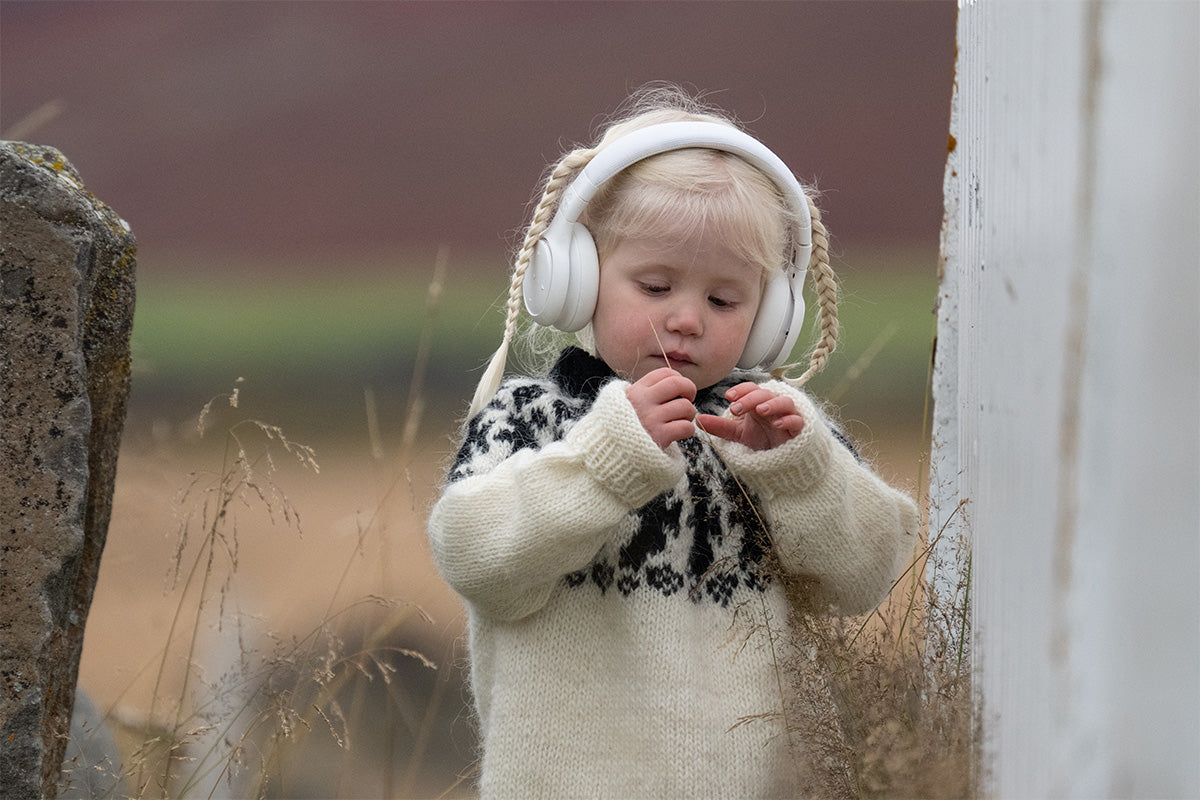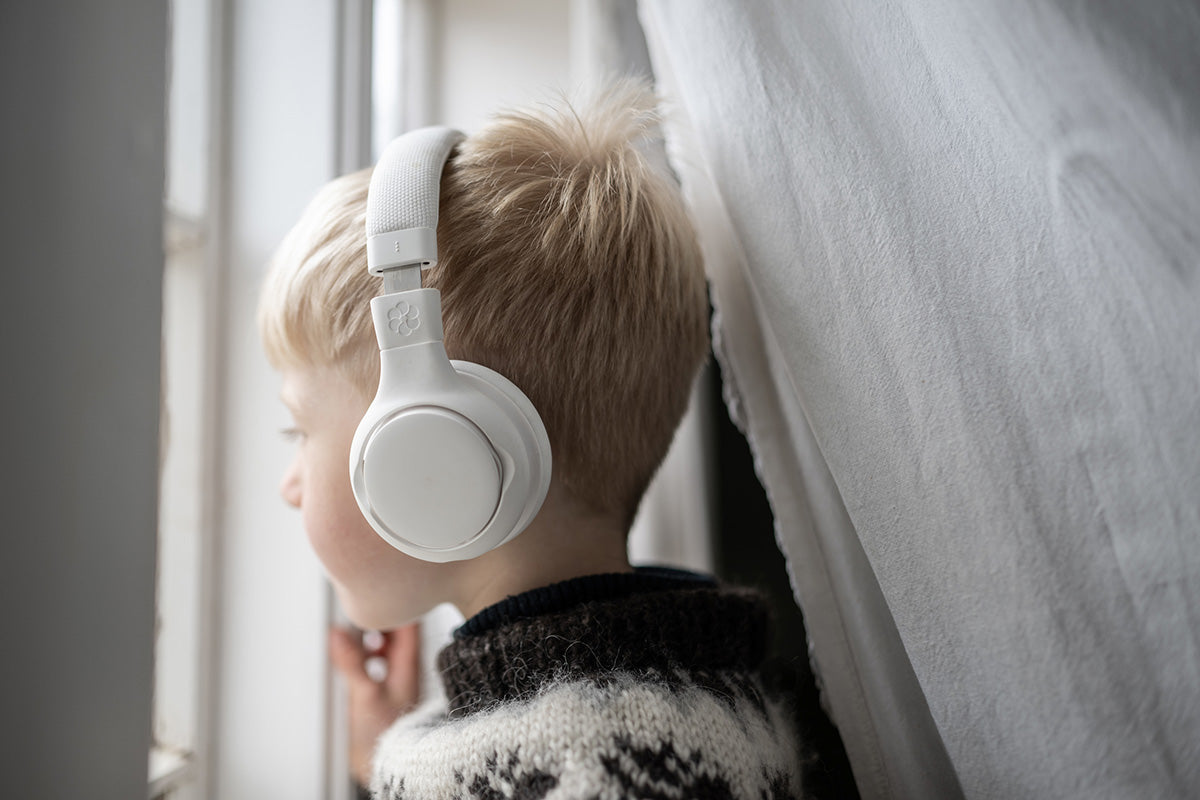
How Screen Time Might Affect Your Toddler’s Development
- by Ester Hilmarsdottir
- 4 min reading time
How Screen Time Might Affect Your Toddler’s Development
Let’s face it – as a parent, sometimes handing your toddler a tablet feels like a lifesaver. Whether you’re trying to make dinner or grab a quick moment of peace, it’s an easy solution. But could this digital babysitter be doing more harm than good? Recent research suggests that too much screen time might be linked to developmental delays in toddlers, especially when it comes to things like communication and problem-solving.
The Research: Screen Time and Development
A new study published in JAMA Pediatrics has found that toddlers who spend a lot of time on screens—anywhere from one to four hours a day by age 1—might face developmental delays by age 2. We're talking about delays in communication, fine motor skills (like picking up tiny objects), problem-solving, and even social skills. And for toddlers glued to screens for four or more hours a day, these effects could be even more noticeable.For example, by age 2, toddlers who had up to four hours of screen time daily were up to three times more likely to struggle with communication and problem-solving. The more screen time they had, the more likely they were to fall behind in these key developmental areas. By age 4, these delays were mostly tied to communication and problem-solving, showing that these early years really matter!
Why Screen Time Might Be Holding Kids Back
So why does too much screen time affect toddlers? Well, the answer is pretty simple: kids learn best from real-life interactions. They need to hear and *practice* language, not just passively listen. Dr. John Hutton, a pediatrician at Cincinnati Children’s Hospital, says that when kids are watching screens, they’re not getting the chance to engage in those important back-and-forth conversations with adults or other kids. They might hear lots of words, but they’re not getting to *use* them, which is key for learning how to talk!
Screens can also take away from playtime, which is essential for developing fine motor skills. Swiping on a screen doesn’t help your child practice using their hands like stacking blocks or playing with toys does. And let’s not forget about social skills—kids need face-to-face time with real people to learn how to communicate, read facial expressions, and build relationships. A character on a screen just can’t teach that.
The Emotional Side of Screen Time
There’s another side to this story that’s all about feelings. When toddlers use screens as a way to cope with boredom or frustration, they miss out on learning how to handle their emotions on their own. According to Dr. Hutton, allowing kids to be a little bored or uncomfortable sometimes helps them develop creativity and resilience. In other words, letting your child figure out how to deal with those big feelings without reaching for a screen can be a major developmental win!
What About Playtime?
Toddlers need time to play! Whether it's coloring, building, or running around, physical activities are crucial for developing motor skills. Dr. Jason Nagata, a pediatrician from the University of California, San Francisco, says that passive screen time doesn’t give kids the same chance to move around and explore their environment. Kids need time to climb, throw, and interact with their world, which helps build both their brains and their bodies.
Screen Time and the Real World
Every family is different, and life can get busy. But experts recommend finding ways to balance screen time with real-world activities. If you have to use screens, try to make it an interactive experience. For example, video chats with grandma or watching educational shows together can help make screen time more engaging and social.
Dr. Nagata also encourages parents to offer non-digital activities when possible—think puzzles, books, or building blocks. Not only will these kinds of toys entertain your toddler, but they’ll also help them develop important skills while keeping their minds and hands busy.
So, What’s the Takeaway?
The big takeaway here? Screen time isn’t evil, but it’s something to keep an eye on, especially when it comes to your toddler’s development. A little bit of screen time can be okay, but it's important to make sure it doesn’t replace all the fun, interactive, and educational activities that help your little one thrive. A creative and screen-free alternative is StoryPhones by ONANOFF—headphones designed specifically for kids that deliver an immersive storytelling experience. Instead of relying on screens, children can dive into a variety of captivating stories, enjoying a fun and interactive way to be entertained.The American Academy of Pediatrics offers some great tips for balancing screen time with other activities. They suggest creating a family media plan to set screen limits that work for your household. And remember, as parents, setting a good example by limiting your own screen time can also go a long way. Kids tend to copy what they see!
In the end, it’s all about finding a balance that works for your family. Life happens, and sometimes screens are unavoidable, but making sure that your toddler has plenty of time to play, explore, and interact with the real world is what will help them grow into happy, healthy little humans.
Source:
Takahashi I, Obara T, Ishikuro M, et al. Screen Time at Age 1 Year and Communication and Problem-Solving Developmental Delay at 2 and 4 Years. JAMA Pediatr. 2023;177(10):1039–1046. doi:10.1001/jamapediatrics.2023.3057


